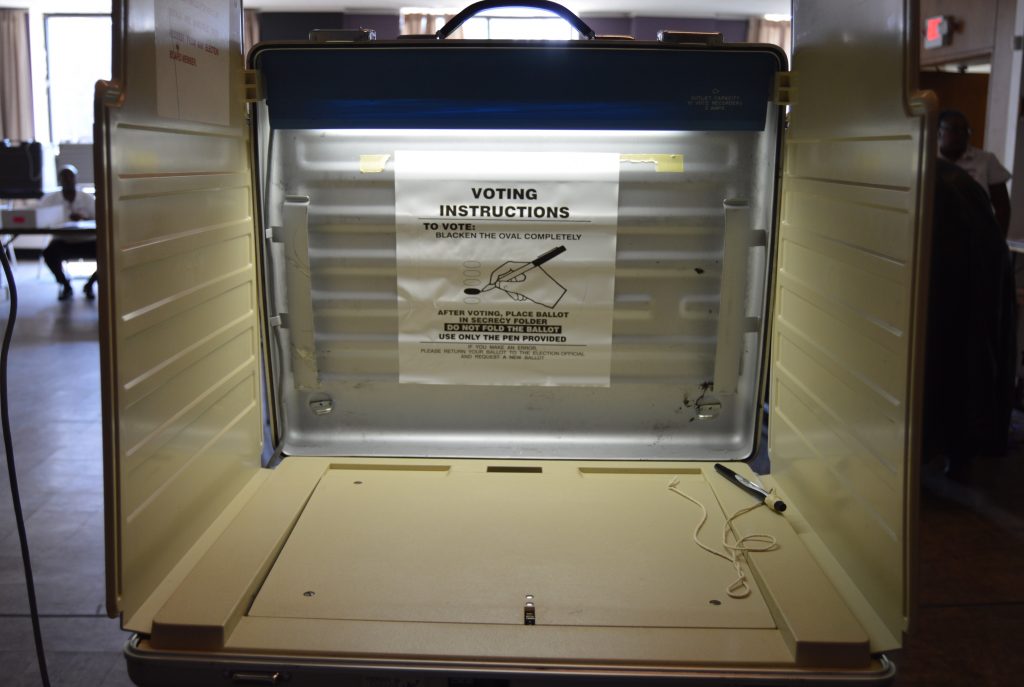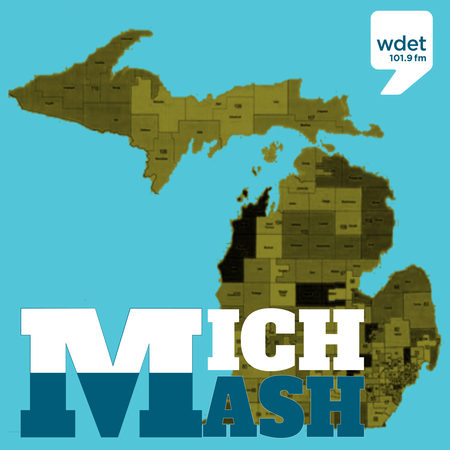MichMash: Could Too Many Ballot Proposals Cause Political Overload for Voters?
Cheyna Roth and Jake Neher talk about the status of several proposals and how they might change the very nature of the election itself.


This week, a campaign to make voting easier in Michigan turned in their signatures to appear on the November ballot. It’s the latest in a string of campaigns hoping to put their proposals before voters this year.
As part of a weekly series called MichMash, Jake Neher and Cheyna Roth talk about how many proposals voters are likely to see in November… and how they might affect the course of the election.
Click on the audio player above to hear that conversation.
What could be on the ballot?
Roth says the tally is something of a moving target, but here’s a quick breakdown:
- A petition to legalize recreational marijuana is slated to be on the ballot. So far it has received no formal challenges and the signatures were verified by the Bureau of Elections. (Find out more here)
- A proposal to overhaul how the state draws its district lines is currently in limbo. Voters Not Politicians turned in their signatures and the Michigan Court of Appeals ordered the Bureau of Elections to certify those signatures – which it did. But a group called Citizens Protecting Michigan’s Constitution is challenging the order by the Court of Appeals. Now the Michigan Supreme Court is scheduled to hear arguments on Wednesday about whether this proposal belongs on the ballot. (Find out more here)
- A paid sick leave petition is under review by the Bureau of Elections. It would create an Earned Sick Time Act that would guarantee employees at least one hour of paid sick time for every 30 hours they work. (Find out more here)
- A Michigan minimum wage petition run by One Fair Wage Michigan would raise the state’s minimum wage to $12 per hour in 2022. It’s under review by the Bureau of Elections. (Find out more here)
- Promote the Vote says its petition would make voting more accessible through changes to the constitution like no reason absentee voting. The group turned in its signatures just under the deadline for review and the signatures are now being considered by the Bureau of Elections. (Find out more here)
Cool! Lot’s of choices so lot’s of people will vote…right?
Maybe.
Roth says it’s possible the wealth of choices on the ballot could bring more people to the polls. She says in some cases, people might not be as excited come November about the candidates they can vote for, but there might be a proposal that gets them out of their chair and out to vote.
Reverend Wendell Anthony is with the NAACP and Promote the Vote, and he not only wants people to vote for their initiative, he wants people to vote in general.
“We’re simply saying get ready to take your souls to the polls and vote like your lives depend on it, because they do.”
But! Too many options could backfire on the proposals
Neher says the idea that ballot proposals drive larger voter turnout has been overhyped in the past. And in some cases, people have been known, when faced with too many options, to just straight vote no.
“In 2012, we had several [proposals] as well and it actually made it really easy for the opposition… to all those ballot proposals, to say just vote no on everything.”
All of those 2012 petitions failed at the polls. Neher says when you overload the ballot, it’s harder to make the pitch to people to do the research and find out ahead of time what the proposals are. It becomes a lot easier to just vote yes or just vote no.
The Roth and Neher advice corner
Do the research! There’s still lots of time before November. Take the proposals one at a time and just spend a little bit of time figuring out what the measure would do and if it’s something you could get behind. You can even research the proposals on your favorite NPR station website.
The research will pay off a lot more in the long run than just straight voting yes or no. Because, as Roth says, “Not all proposals are created equal.”
